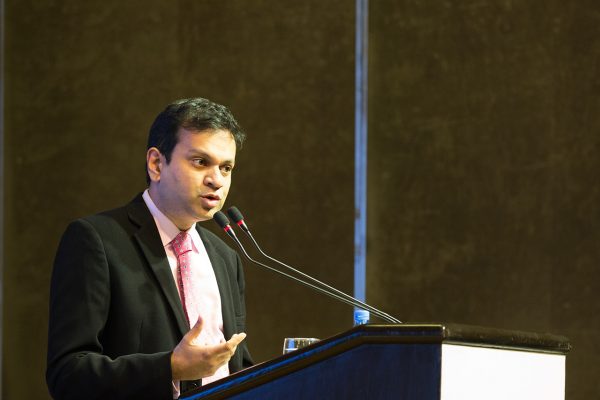Reading Time: 3 minutes
Last year, I met a few of the Bangladeshi garment workers who survived Rana Plaza. I heard their stories, and today, on the one-year anniversary, I feel the need to share one of them. This is really a story of mothers and daughters. A year ago today, more than 1,134 Bangladeshi garment workers went to work and didn’t come home. Fearful of losing their jobs, they entered a building they knew was unsafe. They died crushed by the rubble.
Last year, I met a few of the Bangladeshi garment workers who survived Rana Plaza. I heard their stories, and today, on the one-year anniversary, I feel the need to share one of them.
This is really a story of mothers and daughters.
A year ago today, more than 1,134 Bangladeshi garment workers went to work and didn’t come home. Fearful of losing their jobs, they entered a building they knew was unsafe. They died crushed by the rubble.
They’d seen the cracks. It’s not that they’d entered the building due to ignorance or stupidity. They’d moved from their villages to work in textile factories by choice, not because they were forced to. Like many of us, they wanted jobs that would offer their children a brighter future.
There are nearly 4 million garment workers in Bangladesh, most of them women. Rozina Begum was one of them.
Rozina’s choice
We spoke through a translator. Rozina described how she’d found herself trapped in a pocket of air after the building collapsed around her. I imagined her choking on the dust and then lying in the darkness. For three days she remained, her arm pinned beneath the concrete.
When the rescue workers uncovered her, photographers rushed over and began taking photos, thrilled to have found a living survivor.
“Stop shooting,” she told them. “I’m trapped!”
Rescue workers couldn’t move the concrete that pinned her arm. The doctors on hand weren’t qualified to do amputations and refused to perform one.
“Give me the chainsaw,” she said. Through a narrow opening, they passed her an electric chainsaw.
She then cut her own arm off.
She told me this the through the translator, with a matter of fact tone. She described how difficult it had been to cut through the bone. She told me how she’d used her free hand to break it, then tear the flesh from the pinned arm.
She told me this like she was describing how to cook lentils.
I thought of her enormous will to survive. I also thought of Rozina’s daughter.
Wherever you go in the world, people rising from poverty talk about their children, about sacrificing to pay for their education and giving them a chance at a better life.

Rozina with an artificial limb, provided by BRAC with support from others. Photo: Scott MacMillan/BRAC
If Rozina had died, there’s no saying what might have happened to her daughter. That’s something she’d had ample time to consider during three days in pain and darkness.
Her daughter now says she wants to be a teacher when she grows up.
I told Rozina the truth. I told her I thought she was an inspiration and a hero.
I hope you agree.
The cost of a shirt.
On the anniversary of Rana Plaza, I’d like to make a direct appeal. There’s a good chance you’re wearing something made in Bangladesh right now. The risks taken by women like Rozina made that possible.
Consider making an immediate donation of the cost of your shirt, or more if you can, to the Bangladesh Humanitarian Fund, which provides livelihood support and assistance to those recovering from the Rana Plaza building collapse and other deadly textile industry accidents.
Women’s empowerment, helped in part by the opportunities created by the textile industry, has transformed Bangladesh. Poverty has been halved in the last 20 years, and there are now more girls in schools than boys. This is not a coincidence.
I’m optimistic that places like Rana Plaza won’t exist in 50 years. Rozina’s daughter and our own children will wonder how we tolerated it. Let’s hasten the coming of that day.
Please donate to this fund today.
Scott MacMillan is the Communications Manager at BRAC USA
Additional resources:








